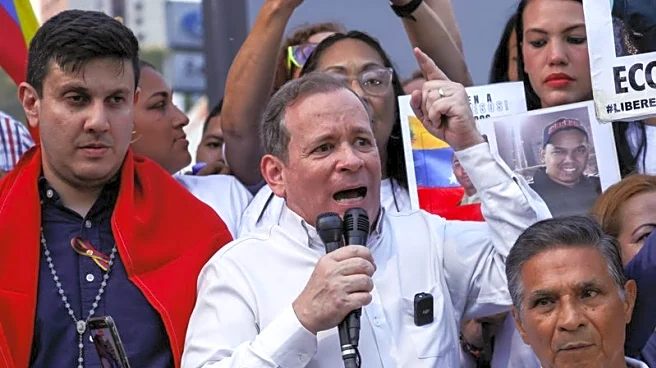Rapid Read • 8 min read
The U.S. Department of Justice is actively seeking voter registration data and election information from at least 19 states as part of a broader initiative to investigate past elections and influence the upcoming 2026 midterms. This effort includes requests for voter lists and records related to the 2024 and 2020 elections. The department has reached out to state election officials through letters, emails, and phone calls, proposing meetings to discuss information-sharing agreements aimed at addressing voting or election fraud. This move has raised concerns among some state officials due to the constitutional authority states hold over election management and the federal laws protecting individual data privacy.
AD
The Justice Department's actions signify a shift in its traditional role of safeguarding voter access to focusing on voter fraud and noncitizen voting, issues that have been subject to false claims by President Trump and his allies. This initiative could impact the political landscape by potentially altering voter registration processes and influencing congressional map redrawing, particularly in states like Texas. The department's outreach has sparked debate over federal overreach and voter privacy, with some states resisting the requests citing legal obligations to protect sensitive personal information.
The Justice Department plans to contact all states eventually, as indicated by communications with the National Association of Secretaries of State. Some states are reviewing the requests, while others have provided public versions of voter lists with personal data redacted. The department's actions may lead to further legal challenges, as seen in North Carolina, where a lawsuit has been filed over voter registration compliance. The ongoing dialogue between state officials and the department could shape future election policies and practices.
The involvement of a criminal attorney in the department's outreach has raised concerns about potential intimidation tactics. Legal experts highlight the Privacy Act of 1974, which restricts federal data collection, as a critical factor in assessing the legitimacy of these requests. The broader implications of this initiative may include heightened scrutiny of election integrity and increased tension between federal and state authorities over election management.
AD
More Stories You Might Enjoy












